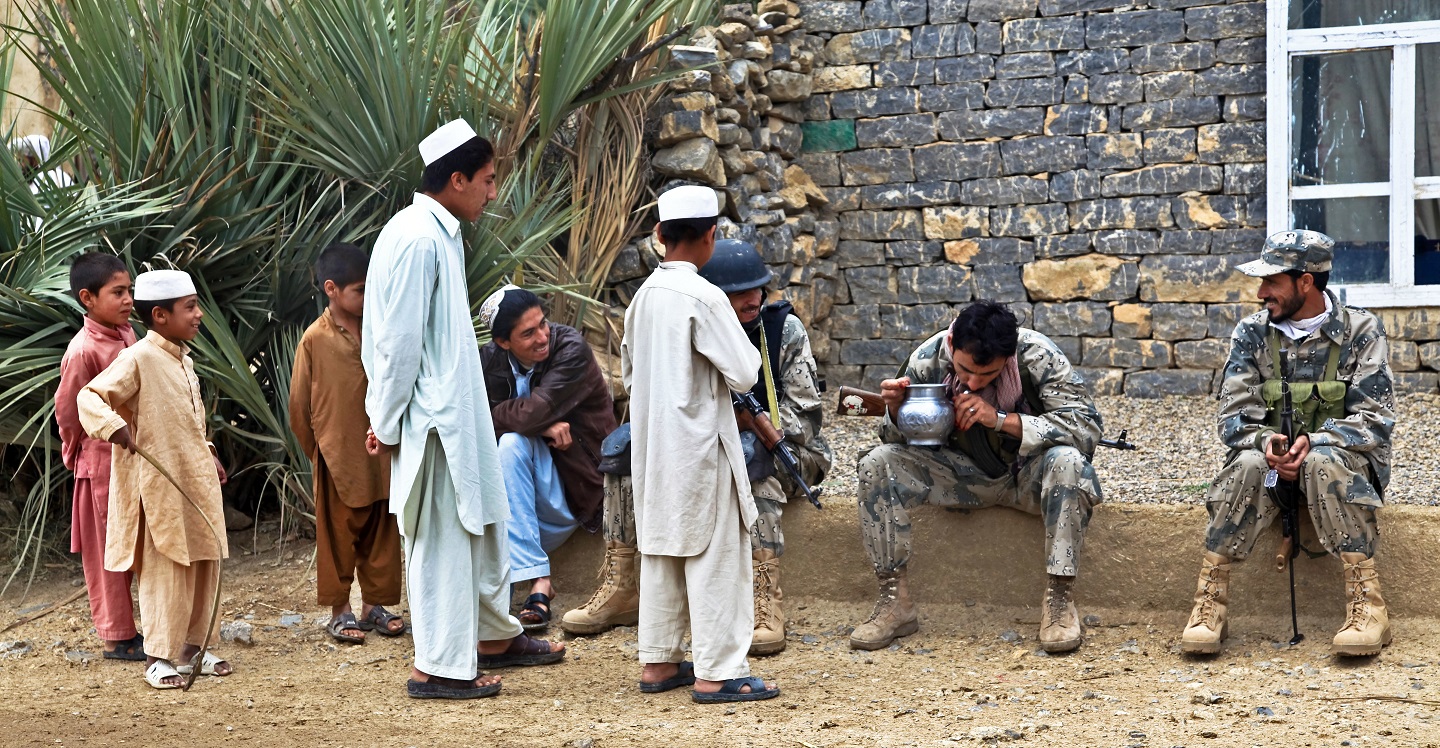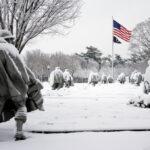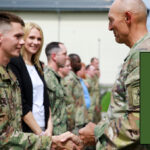
These groups, although a strategic and powerful asset for the U.S. mission in fighting terrorism, are disruptive to forms of justice of Afghan society and weaken Afghan institutions.
The Khost Protection Force (KPF) is an Afghan paramilitary group that operates in the east along the border with Pakistan, primarily on covert, kill-or-capture operations referred to as night raids against the Taliban, Islamic State of Iraq and Syria-Khorasan (ISIS-K), and groups affiliated with al-Qaeda. The KPF is just one example of the many similar paramilitary groups that—in-name only—fall under the command of the Afghan National Directorate of Security (the Afghan intelligence body), but who are trained and directed by the Central Intelligence Agency (CIA). These groups, although a strategic and powerful asset for the U.S. mission in fighting terrorism, are disruptive to forms of justice of Afghan society and weaken Afghan institutions. In order to meet the needs of the Afghan peace process and not solely the special interests of the United States, the roles and relationships of the KPF and its counterparts must be renegotiated so that the Afghan government has oversight of these groups, in turn, bolstering transparency and accountability.
As background, these paramilitary forces were first used by the CIA shortly after the 2001 invasion. U.S. special operations forces (originally SEALs, but recently Army Rangers) usually accompany these units through a program code named Omega. They conduct raids on suspected terrorist-linked households in rural villages and towns. International outcry over human rights violations and war crimes during these raids forced the Obama administration to limit their use in 2009, but the program was reintroduced in 2015 and expanded by the Trump administration. A 2019 Human Rights Watch Report accused paramilitary groups like the KPF of violating international humanitarian law, including committing extrajudicial executions and targeting medical facilities.
There are two main issues with the KPF and its counterparts that are critical to securing peace following the U.S.-Taliban peace deal: their disruption of the social fabric in Afghan communities and their tendency to undermine Afghan institutions.
First, when paramilitary groups commit extrajudicial killings or act on bad intelligence that results in the death of innocent civilians, it affects the social fabric of communities. Ethnic codes rely on complex forms of justice both procedural justice and retributive in nature. Afghans have historically settled disputes through community organized councils called Jirgas, during which cases are presented to elders or tribal leaders who then decide how the parties should resolve their issues. Several decades of war have altered this form of justice in various ways, but it remains as an important judicial tool in rural society for Afghans. When night raids end with extrajudicial killings, destroyed property, and trauma, Afghans are left with no way to seek justice to hold the guilty parties accountable. These paramilitary units, effective in countering terrorists on behalf of the United States, thereby create mistrust between rural Afghans and national military forces and, in turn, the Afghan government.
Further, the nature of these paramilitary groups makes it impossible to hold any party accountable for humanitarian atrocities and war crimes, as they operate under the veil of secrecy provided by the CIA without of oversight from the Afghan government. Frankly, without oversight, there is no sure way to collect data on paramilitary operations even if investigations were to take place. Groups like Human Rights Watch and the Afghanistan Analyst Networks can only rely on the survivors of such raids who may or may not be able to provide credible accounts.
Which brings us to the second issue with these groups: Oversight and accountability is lacking at nearly all levels of the Afghan government. The United States is not to blame for all the shortcomings of the Afghan government, but the United States does not have to be complicit in creating and supporting policies that are antithetical to and weaken democratic institutions. Investigations into these human rights crimes could also start a reconciliation process that would support Afghanistan’s overall peace process. Human rights organizations could effectively lead these initiatives on a small, grass-roots level, directly working with victims of injustices towards mending and building the relationship between rural civilians and the Afghan government.
Of utmost importance and urgency, establishing a clear chain of command within the Afghan National Security Forces would allow for some means of oversight and accountability for the KPF and similar groups.
The question of what will be done with C.I.A. operations—and subsequently the paramilitary groups they operate—fall under a much larger question: how can the U.S. counter terrorist groups that present a risk to the U.S. and its allies while withdrawing U.S. troops and ending its combat mission in Afghanistan? Ideally while also ensuring that the Afghan government does not fall apart. The problems are complex and the situation unprecedented, but there can be room for creative options.
Of utmost importance and urgency, establishing a clear chain of command within the Afghan National Security Forces would allow for some means of oversight and accountability for the KPF and similar groups. Allowing the paramilitary groups to run as is—absent U.S. Army Rangers and CIA operatives focused on countering terrorist activity—could mean that human rights violations turn into mass atrocities. Even worse, if the KPF and others are not absorbed into the Afghan National Security Forces, the U.S. and Afghanistan risk the groups’ succumbing to greed by turning into for-hire armies for regional warlords.
Additionally, units like the KPF, which are already setup to operate within a regional context, could support and provide training for other local defense forces such as the Afghan National Police, bolstering local security capacities. Ensuring that these groups become an asset to the Afghan government instead of a hindrance on the government’s ability to govern must be discussed in every step of the peace process with the Taliban and implemented alongside the withdrawal of U.S. forces.
This is important for Americans because efforts to ensure follow through of the peace deal negotiated by the U.S. Special Representative Zalmay Khalilzad with the Taliban have included the possibility of pulling CIA and U.S. military personnel from being deployed with paramilitary groups. Some experts suggest pulling U.S. personnel would create a vacuum that incentivizes criminal operations such as drug trafficking and allows for the formation of terrorist cells planning against the U.S. and its allies. It could provide ISIS-K an edge towards its goal of creating a shadow state from which to launch international terrorist attacks. In the peace agreement, the Taliban agreed that it would not work with terrorist groups plotting against the U.S. and its allies. Bringing the KPF under the authority of Afghan security forces while U.S. personnel liaise with the National Directorate of Security is the only practical way going forward to assure the Taliban upholds its end of the deal.
Sulaiman Aziz Popal is an MA student in the Global Affairs Program focusing on conflict and security at George Mason University. His area of focus is mass atrocity and genocide prevention. The views expressed in this article are those of the author and do not necessarily reflect those of the U.S. Army War College, the U.S. Army, or the Department of Defense.
Photo Description: Local Afghan children serve chai to members of 4th Platoon, 3rd Afghan Border Police during a patrol of Taghawarq village, Khost province, Afghanistan, April 14, 2012. U.S. soldiers and counterparts of the ABP searched the village for a reported weapons cache in order to deny insurgents freedom of movement.
Photo Credit: U.S. Army photo by Spc. Amber Leach




